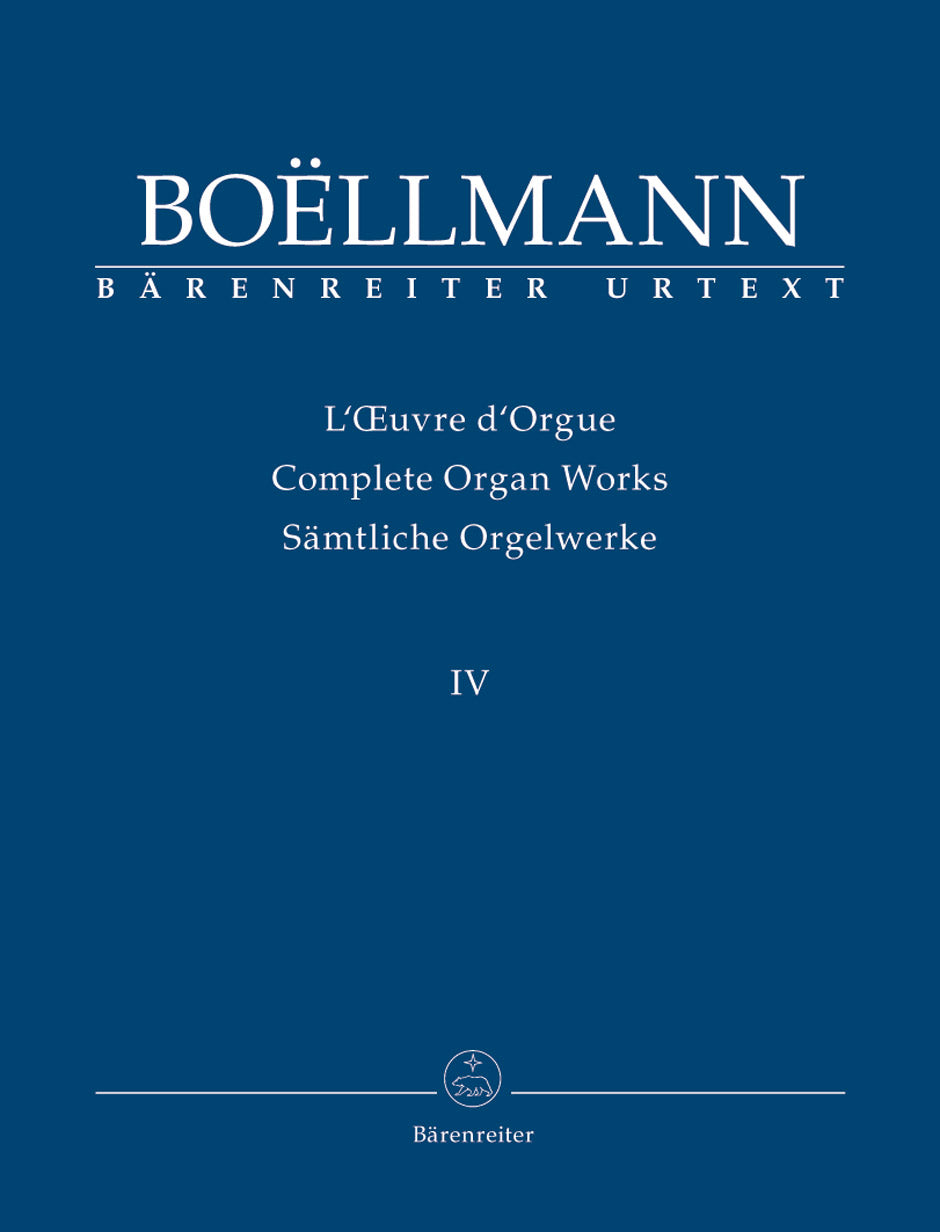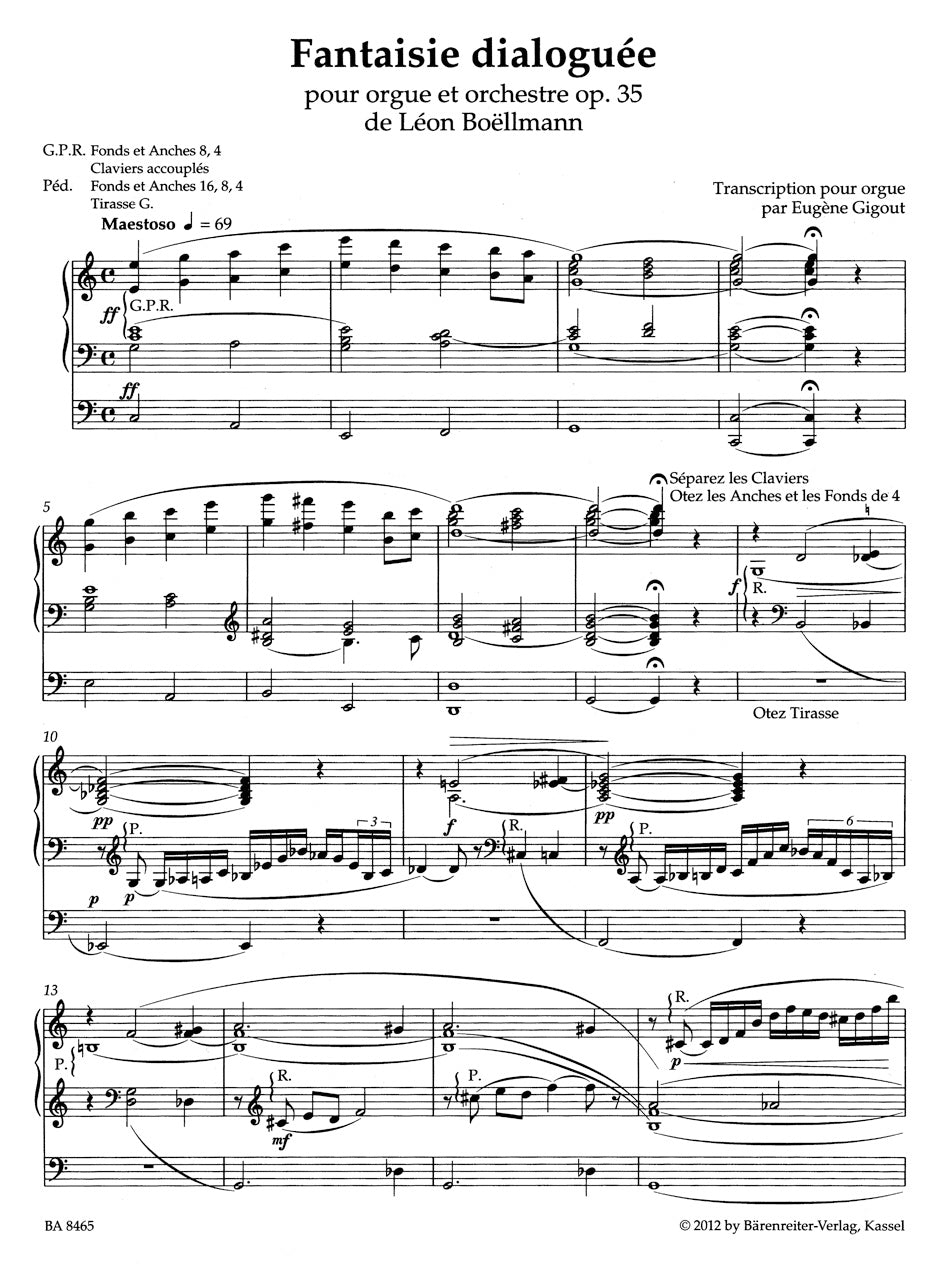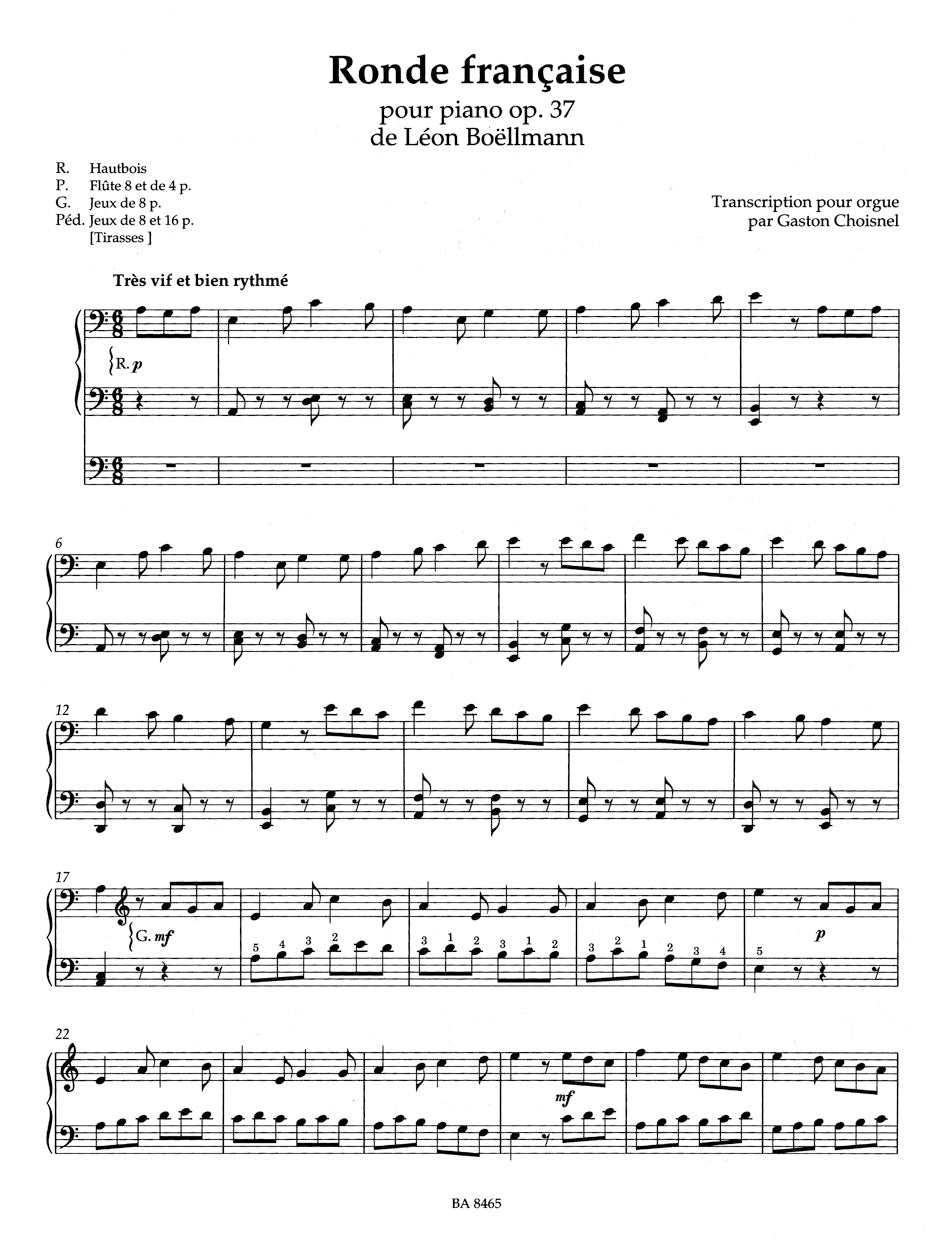


BARENREITER - 345062
Boellmann Works arranged for Organ
Composer: Leon Boellmann
Publisher: Bärenreiter
Instrumentation: Organ
Binding: Paperback
Dimensions: 11.8 in x 9.1 in
Pages: 48
Boellmann Works arranged for Organ
Juilliard Store
144 West 66th Street
New York NY 10023
United States
Choose options
Boellmann Works arranged for Organ
Juilliard Store
144 West 66th Street
New York NY 10023
United States
Boellmann Works arranged for Organ
Juilliard Store
144 West 66th Street
New York NY 10023
United States
Editor: Schauerte-Maubouet, Helga
Orchestral scoring : Org
Product format: Performance score, Anthology, Urtext edition
Binding: Paperback
Pages / Format: XXII, 48 - 30,0 x 23,0 cm
This new volume contains those of Boëllmann’s works that were transcribed for organ and harmonium by his contemporaries, as well as works by composers of the time which were arranged by Boëllmann. The edition includes a detailed foreword (Fr/Eng/Ger) with advice on performance practice and facsimile pages of the manuscript, as well as a critical commentary (Fr/Eng/Ger).
- First Urtext edition of the complete works of Léon Boëllmann in 7 volumes
- Reflects current scholarship; draws on newly discovered sources
- Detailed foreword and critical commentary (Fr/Eng/Ger)
- Catalogue of available sources as well as facsimile pages of the manuscript included
Contents
I. Works by Léon Boëllmann, arranged by composers of his time for organ and harmonium: “Fantaisie dialoguée” op. 35 (transcription by Gigout); “Ronde française” op. 37 (transcription by Choisnel); “Prière à Notre-Dame” op. 25 (transcription for harmonium by Gigout)
II. Works by composers of the time, arranged by Léon Boëllmann for organ:
Camille Saint-Saëns, “Marche du Synode”; Vincent d’Indy, “Sarabande”
